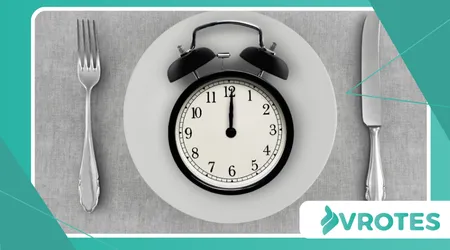Nutrient Timing: Best Times to Eat for Energy and Sleep Support

Best times to eat for energy and sleep support. This strategy can optimize your body’s functions.
Anúncios
By synchronizing your meals with your circadian rhythm, you can feel more alert during the day and rest better at night.
It’s not some fad diet, but a strategic approach to fueling your body.
The goal is to get the most out of every calorie. We’ll explore how specific meal timings can transform your daily life.
Think of your body as a high-performance engine with an intricate operating system.
Anúncios
Just as a race car needs fuel at precise moments, so does your body. Timing your nutrient intake is key to peak performance.
Proper timing helps manage blood sugar levels, preventing those afternoon slumps. It also ensures your body has the right building blocks for repair and regeneration while you sleep.
It’s a powerful tool for anyone looking to improve their health. This includes athletes, busy professionals, and people simply seeking a better quality of life.
The Morning Kickstart: Fueling for a Productive Day
Starting your day with the right meal is crucial. After a night of fasting, your body needs a clean, efficient fuel source to get going. A balanced breakfast sets the stage for a productive day.
The ideal morning meal should combine complex carbohydrates, lean protein, and healthy fats. Carbs provide sustained energy, while protein helps with satiety and muscle maintenance.
For example, a bowl of oatmeal with berries and a handful of almonds is an excellent choice. The oats provide slow-releasing energy, while the nuts offer healthy fats and protein.
Another great option is a scramble with eggs, spinach, and whole-wheat toast. This meal offers a great balance of protein and complex carbs to fuel your morning.
Read here: Meal Prep Ideas for Menopausal Weight Management
Skipping breakfast can lead to poor concentration and overeating later. It disrupts your body’s natural rhythm, causing you to feel sluggish and less focused.
A study published in the American Journal of Clinical Nutrition found that people who eat breakfast regularly have a lower risk of developing type 2 diabetes. This highlights the importance of morning nutrition.
Midday Meals: Sustaining Momentum
Lunch is all about sustaining the energy you built up in the morning. It’s the midpoint fuel-up to prevent that dreaded post-lunch crash.
Opt for a meal with moderate portions of protein and complex carbs. Avoid heavy, high-fat foods that can lead to digestive sluggishness.
A grilled chicken salad with a variety of colorful vegetables is a perfect lunch. The protein keeps you full, and the veggies provide essential vitamins and fiber.
Another good idea is a turkey and avocado wrap on a whole-wheat tortilla. The complex carbs provide energy, and the healthy fats in the avocado keep you satisfied.
Avoid large sugary drinks or simple carbs that cause a rapid spike in blood sugar. These lead to a quick burst of energy followed by a sharp crash.
Consider how your body processes food throughout the day. Lunch is the time to replenish what was used in the morning and prepare for the afternoon ahead.

Afternoon Snacks: Bridging the Gap
Afternoon is when many people start to feel their energy wane. A strategic snack can be a game-changer, preventing you from reaching for unhealthy treats.
A small, well-timed snack can stabilize blood sugar and keep your mind sharp. It’s also a great way to avoid overeating at dinner.
Read more: Anti-Inflammatory Spices to Add to Your Daily Diet
The key is to choose a snack that combines protein and fiber. An apple with a tablespoon of peanut butter is a classic example that works wonders.
Another excellent choice is a handful of mixed nuts or Greek yogurt with a few berries. Both provide a great mix of protein and healthy fats.
Evening Meals: Winding Down for Rest
Your evening meal should prepare your body for a good night’s sleep. This is not the time for heavy, greasy foods or large portions.
A light, easily digestible dinner is the goal. Focus on lean proteins, vegetables, and a small portion of complex carbs.
Eating too close to bedtime can disrupt sleep by causing indigestion. It forces your digestive system to work when it should be resting.
A perfect example is baked salmon with steamed broccoli and a small sweet potato. This meal is light yet filling, providing nutrients without a heavy feeling.
Another option is a small bowl of lentil soup with a side of whole-grain bread. The warm soup is comforting, and the lentils provide fiber and protein.
Avoiding spicy foods and caffeine in the evening is also a must. They can be stimulants that keep you awake and can irritate your digestive system.
The Final Meal: Pre-Bedtime Considerations
The timing of your last meal is critical for sleep. Ideally, finish dinner at least two to three hours before bed. This allows for proper digestion.
If you find yourself hungry before bed, choose a very small, light snack. Something that promotes sleep, like a banana or a small bowl of oatmeal.
++ Self‑Soothing Tactics When Hot Flashes Hit
A small bowl of oatmeal before bed can promote sleep. It’s a good source of tryptophan, an amino acid that helps produce serotonin and melatonin.
A glass of warm milk is also a classic, effective remedy. It contains calcium and tryptophan, which are both beneficial for a restful night.
Best times to eat for energy and sleep support often involve careful planning. This ensures that you’re not hungry but also not digesting a heavy meal while trying to sleep.

The table below shows some key nutrient timing recommendations.
| Time of Day | Ideal Macronutrient Profile | Sample Meal/Snack |
| Breakfast | Complex Carbs, Protein, Healthy Fats | Oatmeal with nuts and berries |
| Lunch | Protein, Complex Carbs, Veggies | Grilled chicken salad |
| Dinner | Lean Protein, Veggies | Baked salmon with broccoli |
| Pre-bedtime | Small, easily digestible carbs | Small bowl of oatmeal |
Mastering Your Body’s Clock
Adopting the practice of best times to eat for energy and sleep support is a powerful health strategy. It’s about listening to your body and fueling it intelligently.
This approach is about creating a harmonious relationship between your diet and your body’s natural rhythms. The benefits extend far beyond just feeling full.
You’ll notice improved concentration, fewer energy crashes, and more restful sleep. Isn’t it time to take control of your health with this simple, yet effective, strategy?
Ultimately, this is a lifestyle change, not a temporary diet. By making small, consistent changes, you can unlock a new level of well-being.
Remember, the best times to eat for energy and sleep support are personal. Listen to your body and adjust these guidelines to fit your unique needs.
This is more than just a diet. It’s an intelligent way to approach nutrition. Your body will thank you.
Frequently Asked Questions
Can I still eat a large dinner if I work out late?
If you work out late, you will need to replenish your body. However, a large, heavy meal right before bed can still be disruptive.
Focus on a post-workout meal with easily digestible protein and carbohydrates, but try to finish it at least an hour or two before you lie down.
What is the most important meal of the day?
While breakfast is often called the most important meal, all meals play a crucial role in your overall health.
The key is balance and timing throughout the day, ensuring you provide your body with consistent, high-quality fuel.
Can these strategies help with weight management?
Yes, absolutely. By regulating blood sugar and preventing energy crashes, you are less likely to overeat or crave unhealthy foods.
This consistent fueling can help you feel more in control of your eating habits and support your weight management goals.
++ Eating your meals at these exact times could boost your energy levels and prevent chronic disease
